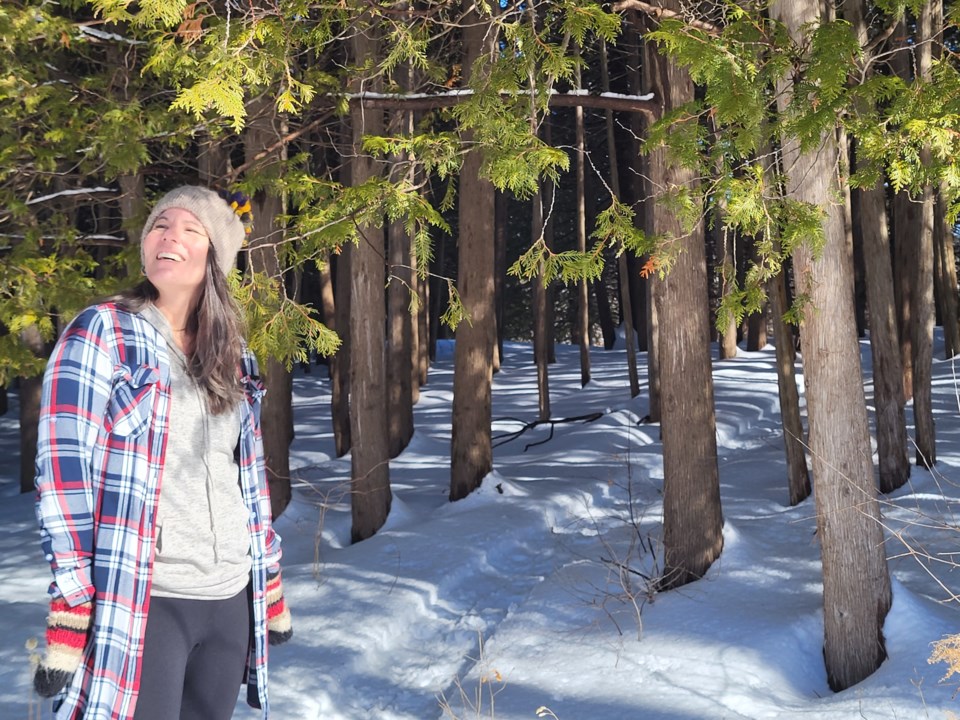Shé:kon sewakwé:kon, greetings to all.
There are preparations in the works ahead of the upcoming season of rest. We see it in the life around us, the leaves have changed and dropped, birds are migrating, animals are gathering food and materials to support their lives during the scarcity of winter.
We too prepare, winterizing and storing outdoor furniture, tools, and equipment; pulling out winter gear and clothing; and maybe some fall harvesting, canning, and food storage.
It’s a busy time in nature and often a busy time in our homes. For me, it can be a motivating time. I think about what new life I will be preparing for while our mother is blanketed in snow. I’m considering how I move through the transition of the seasons of life.
Where have I been and where am I going?
I went through institutionalized schooling from elementary to secondary to college, and then I worked for the federal government for 13 years (my university degree was acquired during this time as well). That is somewhere around 30 years of learning and working under prescribed western pedagogy, ideology, culture, and frameworks.
I’m not angry or resentful about that, it’s the reality of colonization. I would describe myself as pragmatic and so the harbouring of such feelings would only hinder my healing and growth. Harming yourself to spite others can’t promote positive personal outcomes.
If I know anything for sure it’s that Indigenous people are resilient, adaptable, and creative. Our ancestors not only survived but preserved languages, cultures, ceremonies, and stories through flagrant attempts to eradicate them. They made today’s reclamation possible.
Now I am exploring and challenging myself to reimagine what my indigeneity looks like in the vastly polarizing climate we live in. Accepting that I am a product of this society dominated by western thought, while knowing that we all lost out when the Indigenous worldview was deemed inferior.
I am shifting away from ideas of decolonization and putting my efforts into the concept of indigenization. I am holding my decisions up to the light of our teachings and using that as my barometer for wise and moral choices.
When colonization is the reference point, then the work becomes moving away from the norms and standards set by various external entities embedded in western ideology.
Am I still guilty of colonized thinking? Yes. Am I still engaging in colonized practices? Yes. Am I driving a car, buying food at the grocery store, using modern technology to work and communicate? Yes. I am realistic. I can do my best to mitigate colonized ways of doing. I support local, I limit travel, I use modern technology to support relationship building.
When I focus on decolonization, there is much room for scrutiny and criticism. Short of a societal revolution, it’s never going to be enough; it will always be out of reach.
Indigenization is an internal process. It is about me and my relationship to my culture and the love, humanity and wisdom therein. I become responsible to the teachings. I become a caretaker of the teachings. All relationships I build in this life become subject to the teachings.
I’m not there yet. I have a way to go. But at least I can be confident I can get there.
Skén:nen, Peace.
Jillian Morris is Kanien’kehá:ka, turtle clan and band member of Six Nations of the Grand River Territory now living in Collingwood, where she also serves as Poet Laureate. She shares stories and experiences passed down through the oral traditions of Kanien’kehá:ka culture in her regular column, entitled Ka’nikonhrí:io, (The Good Mind) published on CollingwoodToday.ca.



